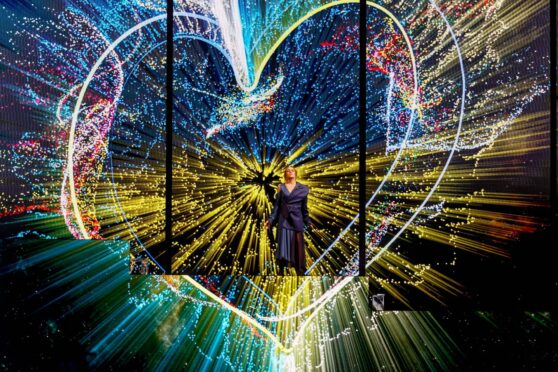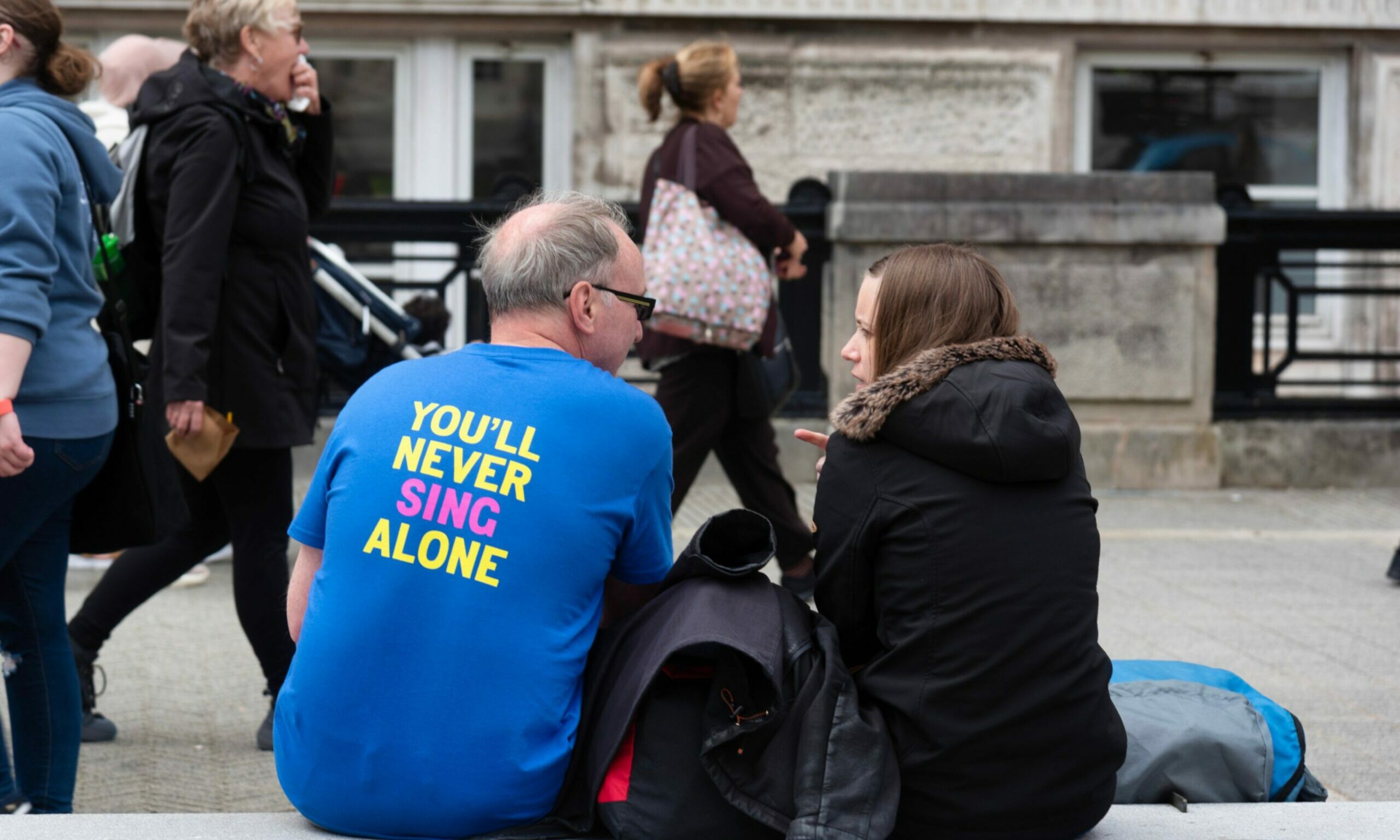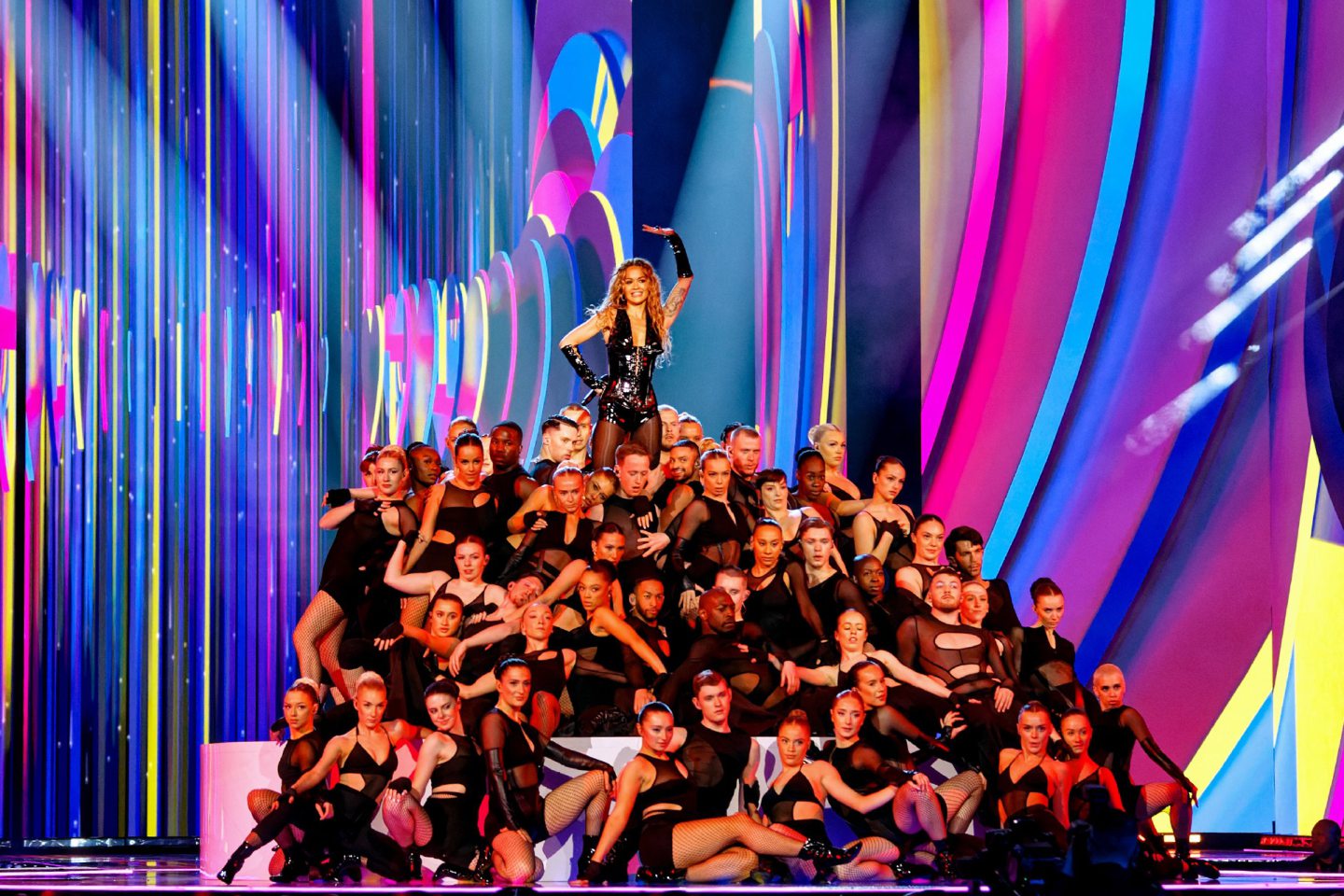Kevin Sherwin can recall dancing round his family’s kitchen in Aberdeen in the 1960s and singing along to I Like It by Freddie and the Dreamers.
And he was one of the children of that era who used to collect cassette tapes of music by recording it off the radio and making sure to press the stop button before the DJ spoke.
So perhaps it’s hardly surprising he was interested in the Eurovision Song Contest from an early age, even if he thought Abba’s Waterloo was “too rocky” when it won in 1974.
It turned into an obsession
At that stage, he had no grand plan to travel to the event itself, and was told it would be impossible in any case. But, suddenly, the chance presented itself for Kevin to attend the 1994 extravaganza in Dublin, notable for bringing Riverdance to the world.
And since then, the Aberdeen taxi driver has travelled more than 40,000 miles, listened to around 900 songs, and visited more than 20 capital cities and conurbations from Copenhagen to Tallinn, Malmo to Vienna, Tel Aviv to Istanbul and Moscow to Helsinki.
He is Scotland’s Mr Eurovision, a man who has met and rubbed shoulders with the likes of Terry Wogan, Graham Norton and Bonnie Tyler and who possesses an encyclopaedic knowledge of one of the great family staples on the entertainment calendar.
Why does Eurovision appeal to so many?
But what exactly is the appeal? After all, plenty of music experts down the years have been scathing about the standard of the songs, the judging, the clothes….the whole mountain of cheese which means that Eurovision often resembles the Cheddar Gorge.
And yet, here we are on the day of the 2024 festivities and myriad parties have been organised, community halls booked and plans drawn up by people all across Europe and as far afield as Australia to savour the latest carnival of kitsch.
And the viewing figures are amazing, especially in today’s world of multi-streaming platforms. Last year’s contest in Liverpool, organised by the European Broadcasting Union, was watched by 162 million people during the course of three live shows.
In which light, criticising Eurovision is a bit like Scrooge slating Christmas. What’s not to like or at least tolerate about an event which promotes diversity and encourages participants to come together in a common bond?
I talked to several musicians last week who write and record their own songs, perform them in front of crowds numbering hundreds at their gigs and will probably never achieve the sort of profile of UK acts such as Sam Ryder and Olly Alexander.
But they wouldn’t be drawn into putting any negative spin on the garish, gaudy, glitter-packed proceedings which will take place in Malmo in Sweden this evening.
‘It’s harmless in small doses’
One said simply: “I don’t watch Eurovision, but it clearly gives a lot of people pleasure and I’m not a killjoy.” Another replied: “Life is pretty grim at the moment, so I guess you have to take your fun where you can.”
And a third responded: “You can laugh about it, but it’s harmless in small doses.”
Kevin himself doesn’t pretend that many of the acts are a threat to The Beatles, The Rolling Stones or Bruce Springsteen when it comes to creating pop masterpieces.
But he has become fascinated with the wacky, the weird and wonderful sights and sounds which he has heard on his odyssey through the last 30 years.
‘It’s like a musical circus’
As he said: “On stage, at different times, I have seen turkeys, spacemen, pirates, men dressed in gorilla costumes, one Austrian with cardboard animals and another with a beard in a dress, Russian grannies, an Australian singer balancing on a 20-foot pole, hamster wheels and one man who wanted to appear naked with live wolves.
“He didn’t get his wish.”
He added: “Having been bitten by the bug, it was obvious that I couldn’t watch the contest at home anymore and I don’t even want to think about how much I have spent on tickets, flights and hotels. What started as a hobby is now an obsession.
“But I think it’s a positive one. Eurovision was originally devised to unite Europe after the Second World War and it certainly does that even now.
“Inside the arena, there are about 10,000 fans who are united by music and having a great time. It’s like Woodstock, but without the magic mushrooms.”
Eurovision divides opinion
Nobody who won Strictly has gone on to join the Bolshoi Ballet. Victors in The Great British Bake Off are unlikely to gain Michelin stars for the quality of their cuisine.
And Eurovision belongs in the same category. It’s less Top of the Pops and more of a circus of delights, with just the occasional horror lurking in the background.
Given what else is happening in the world, why shouldn’t people enjoy it?
North-east funeral celebrant, Gillian Anderson, is another aficionado who explained why the event has held her attention down the decades.
She said: “Eurovision has provided an annual burst of escapism for me and a group of my friends who get together to enjoy a good catch up and loads of laughs while watching the music contest that divides opinion but brings so many people together.
It’s escapism pure and simple
“Some people can’t understand why anyone would spend a Saturday night watching Eurovision, but I love it and make sure the date is always kept clear in my calendar.
“I’ve watched it while heartbroken over break-ups, elated due to new romances, weeks away from giving birth and when in need of a precious few hours away from being on call as a new mum. Years before you could download a scorecard from the internet, we designed our own, so we could rate the songs, the outfits and the dance routines.
“Although politics creeps in during the voting section of the show, Eurovision is about not taking yourself too seriously and celebrating some cheesy performances, bizarre outfits, the occasional good song – and the company of your best friends.”





